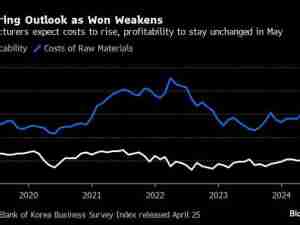Let Trump Rebrand Nafta, But Don’t Let Him Wreck It
By: The Editors | Aug 16 2017 at 07:30 AM | International Trade
As talks to revise the North American Free Trade Agreement start in Washington, it still isn’t clear whether President Donald Trump wants to dismantle the pact—” the worst trade deal maybe ever signed anywhere,” he’s called it—or merely rebrand the same basic product under his own name. With any luck, it will be the latter.
The administration’s negotiating goals, published last month, don’t rule this out. It’s even possible that the agreement can be improved here and there, bringing it up to date with current trading conditions and strengthening its support for cross-border competition and efficiency. The main thing, though, is to avoid a breakdown that puts the existing arrangements in jeopardy.
This risk arises because Trump has repeatedly said that trade deals only serve U.S. interests if they reduce the country’s current-account deficit. This is simply wrong—and if it becomes his litmus test for the new Nafta, the talks could easily do serious harm. Trade agreements don’t drive trade imbalances. Their purpose is to foster competition—hence greater efficiency, higher productivity and rising living standards.
Make that the test of the new pact, and the talks present an opportunity to make a good agreement better.
The U.S. says it wants stronger labor and environmental standards, and better protections for intellectual property. Those ideas—built into the proposed Trans-Pacific Partnership, by the way, which the U.S. abandoned—are worth pursuing. And seeking formal rules on currency manipulation shouldn’t do much harm, because the issue hasn’t arisen in North American trade; this too could set a useful precedent for future trade agreements.
There are two main hazards. The U.S. says it wants to weaken Nafta’s dispute-settlement system, which would make it easier to take unilateral action against trade practices the U.S. deems unfair. The U.S. also wants governments to have more latitude to prefer local over foreign suppliers when it comes to their own procurement. The first of these, especially, might be capable of wrecking the talks. Canada has objected strenuously to the idea, and rightfully so. Resolving disputes through arbitration rather than unilateral sanctions is a core tenet of liberal trade.
By all means let Trump rebrand Nafta, especially if he can make it better at the margin. But if he succeeds in ruining a good thing, he’ll be the worst U.S. president on trade maybe ever seen anywhere.








